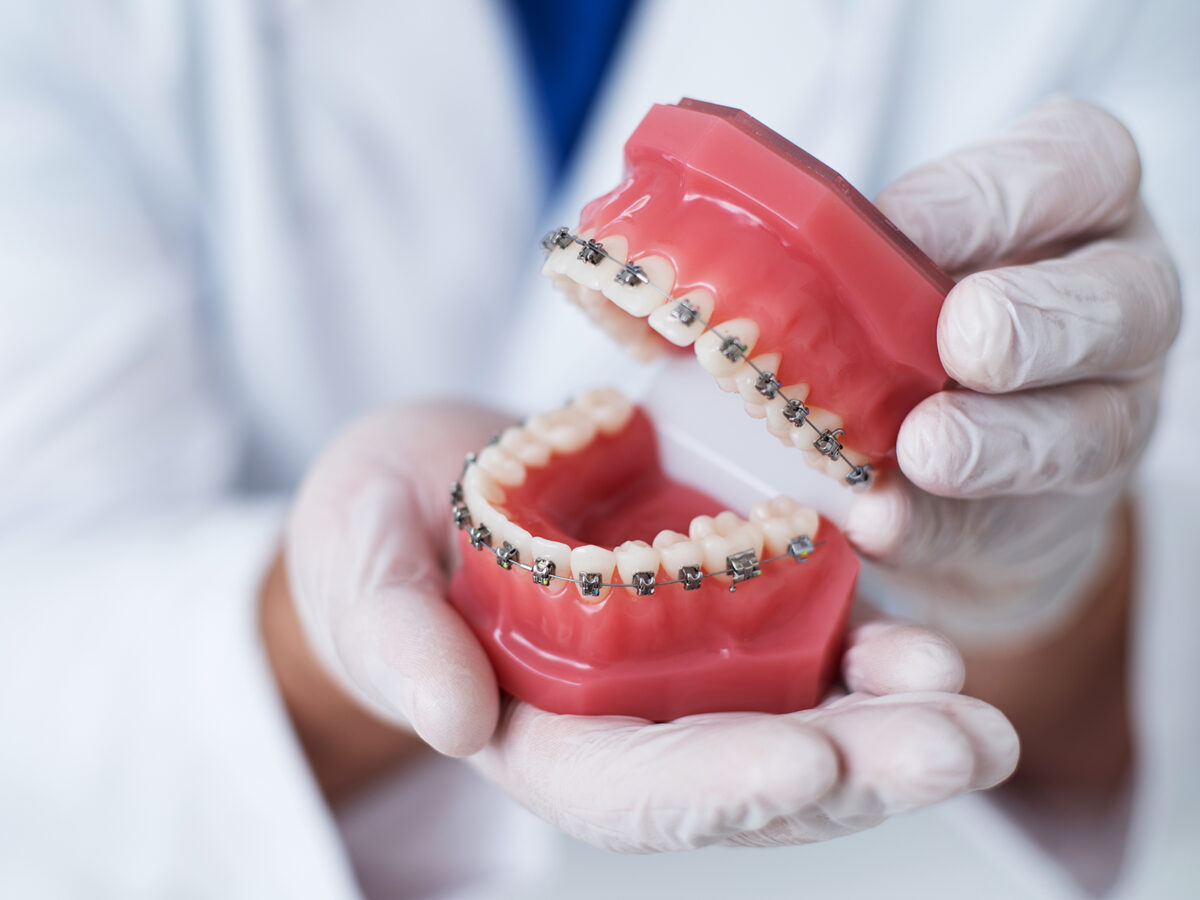Blog
Dental hygiene tips for healthy teeth & gums

The Importance of Oral Hygiene During Orthodontic Treatment
A healthy smile and good dental health are achievable with excellent oral hygiene, especially for those undergoing orthodontic treatment. When you wear braces, there’s a risk of food and bacteria becoming trapped between your teeth. Good oral hygiene can help keep the braces and the surrounding area clean.
In this blog, you’ll learn about the importance of oral hygiene practices and tips to maintain good dental health. Adopting good dental habits can help maintain healthy pearly whites and prevent cavities or the formation of odor in your mouth.
Threat To Dental Health
Without proper oral hygiene, teeth can accumulate significant plaque buildup. Over time, plaque can turn into thick tartar. These deposits are challenging to remove on your own and attract more bacteria. Individuals with braces often find it harder to clean such stubborn deposits, putting them at risk of damaging their tooth enamel.
Microorganisms and bacteria produce acid, which can erode tooth enamel and cause lesions. These lesions might manifest as decalcification spots on the teeth, which can lead to cavities. These germs thrive on sugars and food particles trapped around your teeth, exacerbating plaque formation.
Tartar buildup necessitates professional dental cleaning to prevent severe conditions. Plaque and tartar can lead to bleeding gums, gum recession, and eventually compromise the bone supporting your teeth. Prompt treatment and proper precautions are essential for maintaining oral health.
Why Oral Hygiene is Necessary?
Neglecting proper oral care can lead to tooth decay and gum disease. Oral hygiene prevents plaque from turning into complex calculus. This buildup can release toxins that affect tooth enamel. Dental plaque is a sticky biofilm that binds bacteria to the tooth surface.
Without intervention or professional cleaning, these bacterial colonies can grow and permanently damage the bone anchoring your teeth. Additionally, plaque and bacteria can discolor your teeth, leaving yellow stains. Adhering to your dentist’s guidelines is a straightforward step to ensure the health of your teeth and gums. Simple practices like regular brushing and flossing can yield effective results.
Tips to Maintain Your Dental Health
To enhance your oral care routine, opt for tooth-friendly foods. Avoiding sticky or hard foods is beneficial, as they can be difficult to remove and promote plaque buildup. After getting braces, it’s advisable to use soft-bristled toothbrushes and interdental brushes for thorough cleaning. A clean mouth minimizes bacterial growth. Alongside plaque-disclosing tablets, mouthwash can help eliminate germs and plaque.
Incorporating regular brushing and flossing into your oral care routine can help maintain optimal hygiene. Interdental brushes can effectively clean gaps between teeth. Adhering to these tips can stave off periodontal diseases and gum recession. Untreated bacterial buildup can infect your gums and expose tooth roots. Moreover, brushing too aggressively can harm your tooth enamel.
Final Overview
Orthodontic treatment, while common, necessitates rigorous oral hygiene for enduring results. Braces demand a bacteria-free environment and consistent cleaning. In the absence of proper hygiene, bacterial proliferation can lead to extensive damage to bone and tooth enamel. If any periodontal disease is detected, it should be addressed before initiating orthodontic treatment.
Professional dental cleaning is pivotal for removing calculus and deposits from hard-to-reach areas. Good dental hygiene can pave the way for successful outcomes and prevent various periodontal diseases. Regular check-ups with your orthodontist are crucial to detect early signs of periodontal issues. Opt for professional dental cleaning to ensure thorough removal of germs and plaque.
